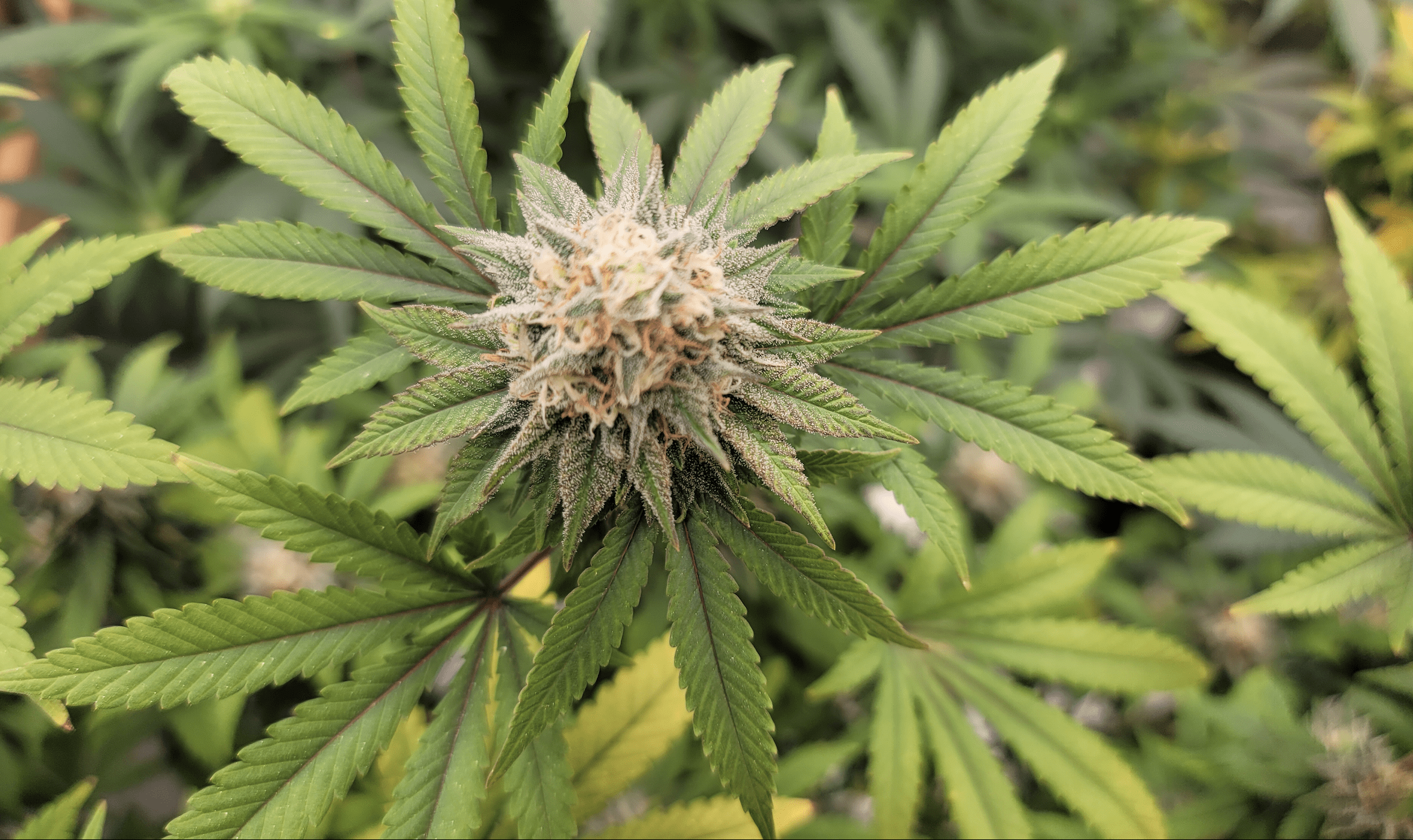Politics
Bill To Federally Legalize Marijuana Reintroduced In Congress As Senate Prepares Separate Measure

A bill to federally legalize marijuana and promote social equity in the industry was reintroduced in the House on Friday.
The legislation, sponsored by Judiciary Committee Chairman Jerrold Nadler (D-NY), was filed with a number of changes compared to the version that was approved by the chamber last year.
The bill—which would remove marijuana from the Controlled Substances Act (CSA), allow people with cannabis convictions to have their records expunged and create a federal tax on marijuana with the revenue going to support community reinvestment and other programs—comes as Senate leadership is preparing to introduce a separate reform proposal with similar objectives.
The Marijuana Opportunity, Reinvestment and Expungement (MORE) Act passed the House but did not advance in the Senate under GOP control. But this time around, advocates are optimistic that the policy change could be enacted now that Democrats run both chambers and the White House, and as more states are moving to enact legalization.
“Since I introduced the MORE Act last Congress, numerous states across the nation, including my home state of New York, have moved to legalize marijuana. Our federal laws must keep up with this pace,” Nadler said. “I’m proud to reintroduce the MORE Act to decriminalize marijuana at the federal level, remove the needless burden of marijuana convictions on so many Americans, and invest in communities that have been disproportionately harmed by the War on Drugs.”
The #MOREAct is one of the most comprehensive marijuana reform bills ever introduced in Congress. We reintroduced it today so it can be brought to President Biden’s desk and signed into law. pic.twitter.com/lFWXHWBUet
— Rep. Nadler (@RepJerryNadler) May 28, 2021
As Marijuana Moment exclusively reported last week, the new version of the MORE Act does not include language that was added just before last year’s House floor vote that would have prevented people with previous cannabis convictions from obtaining federal permits to operate marijuana businesses. That was a contentious provision that appeared at the last minute and which advocates strongly opposed.
And whereas the the prior version of the MORE Act contained language to help economically disadvantaged people enter the legal marijuana market, that language was revised to extend Small Business Administration (SBA) aid—such as loans, financial literacy programs and job training—to help people who have been harmed by the war on drugs pursue business opportunities in any industry, not just cannabis.
Many of the other key provisions of the bill remain the same as in the version that cleared the House last year, including language to create a pathway for resentencing for those incarcerated for marijuana offenses, protect immigrants from being denied citizenship over cannabis and prevent federal agencies from denying public benefits or security clearance due to its use.
The #MOREAct will:
-decriminalize marijuana at the federal level
-reassess marijuana convictions
-invest in local communitieshttps://t.co/QGa5OBxKTs— Rep. Nadler (@RepJerryNadler) May 28, 2021
Advocates are encouraged by the new revisions to the bill, but there are still additional components they hope to see changed as it goes through the legislative process. For example, they also took issue with provisions added to the MORE Act prior to last year’s vote that would have stipulated that cannabis can still be included in drug testing programs for federal workers.
“With the majority of Americans in favor of marijuana legalization for adult use, and the way in which communities of color have been devastated by prohibition finally being widely acknowledged, prioritizing marijuana reform that begins to undo this harm and give back to those communities should be a no-brainer,” Queen Adesuyi, policy manager for the Drug Policy Alliance’s (DPA) Office of National Affairs, said.
“We are grateful that not only was this bill reintroduced so early in the session, but that the exclusionary language that ended up getting added in through the political process last year was removed,” she said. “This bill is meant to comprehensively address the widespread harms of prohibition, and it is impossible to do that if we are still leaving those that have already paid the steepest price out. We urge House Leadership to bring this bill to the floor without delay.”
It’s been two months since Nadler first announced his intent to reintroduce the MORE Act, which would federally deschedule marijuana on a retroactive basis and allow those with prior cannabis convictions to have their records expunged.
Maritza Perez, director of DPA’s Office of National Affairs, said it’s “clear, by the overwhelming extent to which they passed the MORE Act last session, that the House understands this for the urgent racial and social justice issue it is.”
“Our communities that have borne the brunt of marijuana prohibition have waited long enough for justice,” she said. “We urge House leadership to move swiftly to bring the bill back to the floor this session, so that we can continue the momentum and move a marijuana justice bill in the Senate as well.”
Meanwhile, Senate leadership is also preparing to file legalization legislation that’s anticipated to include similar social equity components.
Senate Majority Leader Chuck Schumer (D-NY), Senate Finance Committee Chairman Ron Wyden (D-OR) and Sen. Cory Booker (D-NJ) have been working on the bill in recent months, and Wyden said recently that it will be introduced “very soon.”
“When the MORE Act was approved by the House of Representatives in the previous session, Congress demonstrated in no uncertain terms that the days of federal marijuana prohibition are numbered,” NORML Political Director Justin Strekal said. “While Senate Majority Leader Schumer and Senators Booker and Wyden continue to solicit feedback for their forthcoming legislation in the upper chamber, the House is preparing to once again advance criminal justice-focused legislation that will bring our failed prohibitionist policies to an end while also ensuring that those Americans who are saddled with the consequences of a marijuana conviction can have their records cleared.”
Schumer has said that the proposal they’re working on will “ensure restorative justice, public health and implement responsible taxes and regulations.” He also made a point in March to say that it will specifically seek to restrict the ability of large alcohol and tobacco companies to overtake the industry.
Instead, it will prioritize small businesses, particularly those owned by people from communities most impacted by prohibition, and focus on “justice, justice, justice—as well as freedom,” he said.
On the House side, a bill to protect banks that service state-legal cannabis businesses from being penalized by federal regulators has already been approved this session. The chamber cleared marijuana banking legislation three times last Congress, only to see it die in the Senate, which at the time was under Republican control.
Separately, a proposal to federally deschedule marijuana that does not include social equity components was recently filed by a pair of Republican congressmen.
“Last year, we saw more progress toward cannabis legalization than ever before. This has been driven by unprecedented reforms at the state level,” Rep. Earl Blumenauer (D-OR) said. “Now, Congress must deal with the problems created by the failed federal policy of prohibition. With a strong base of support in the House and in the Senate, the table is set. It’s past time that we stop federal interference with cannabis banking and research, as well as the terrible pattern of selective enforcement that has devastated communities of color. The MORE Act will help address all of these problems and more.”
Rep. Barbara Lee (D-CA) said that “during the last year, people across the country have seen how injustice impacts communities of color—from police brutality to the COVID-19 pandemic.”
“The War on Drugs is no exception. We must deliver justice to those most impacted by America’s racist and discriminatory cannabis laws,” she said.
Read the full text of the new version of the MORE Act below:
Youth Marijuana Use Remained Stable After States Started Enacting Legalization, Federal Report Finds
Photo courtesy of Mike Latimer.
















